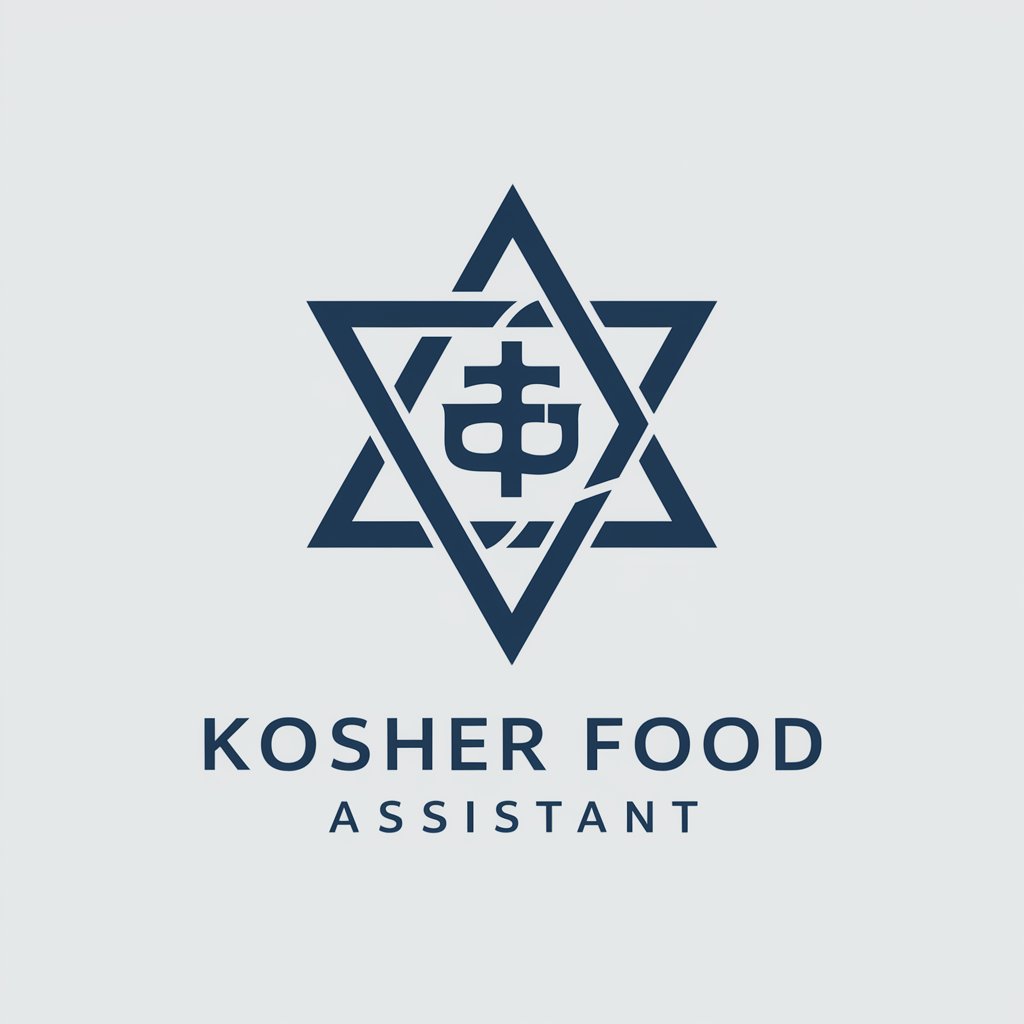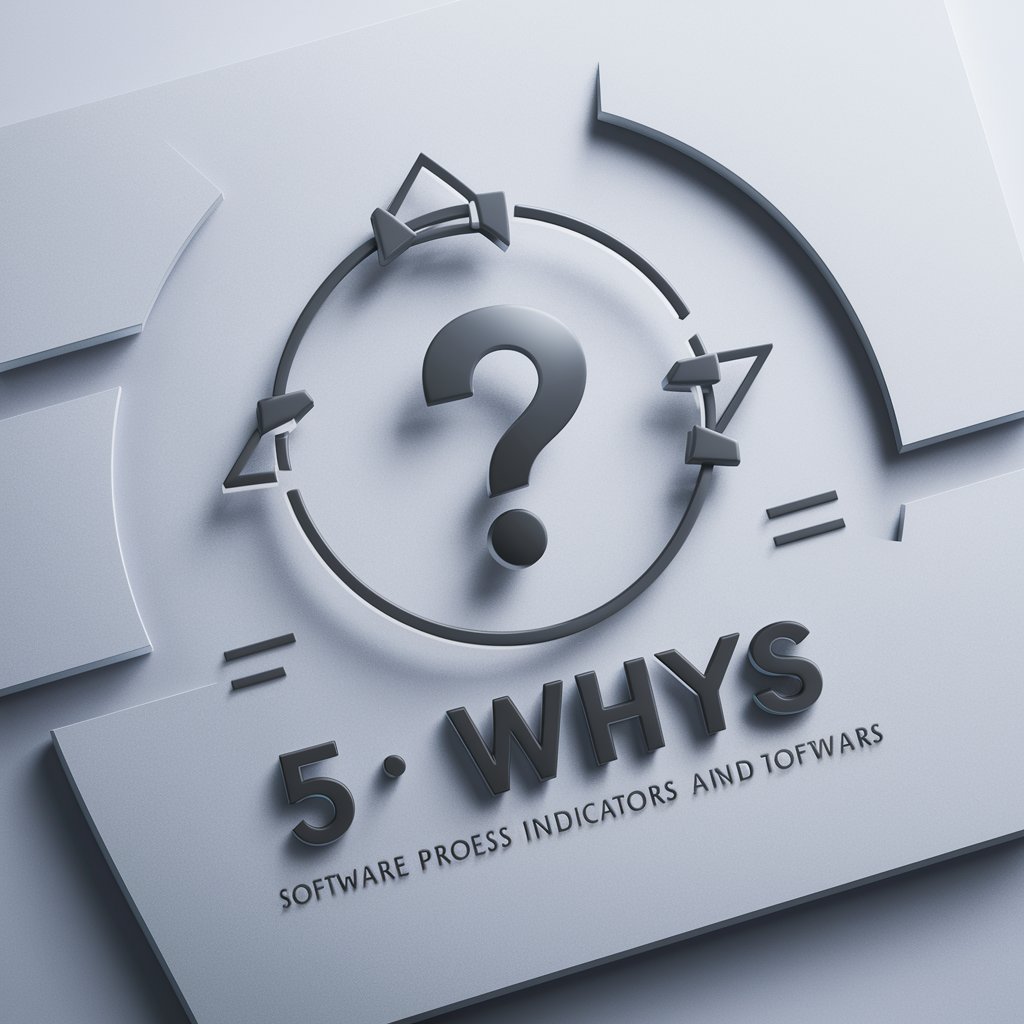Kosher - Kosher Dietary Insight

Hello! Need help with Kosher food laws or recipes?
Empowering Kosher Compliance with AI
Can you suggest a Kosher recipe for...
What are the main Kosher certification organizations?
How can I ensure my kitchen remains Kosher?
What are the dietary laws for observing Passover?
Get Embed Code
Introduction to Kosher GPT
Kosher GPT is designed to serve as an expert system focusing on Kosher food laws, certification processes, and Kosher recipes. Its primary purpose is to provide users with accurate, comprehensive information about Kosher dietary practices, enabling adherence to these dietary laws. For example, it can clarify whether certain foods or additives are Kosher, explain the significance of different Kosher symbols on food packaging, or suggest Kosher recipes for specific occasions. A scenario illustrating its use could be a user planning a Kosher meal for a Jewish holiday, seeking to ensure all ingredients and preparation methods meet Kosher standards. Kosher GPT could provide detailed guidance on selecting appropriate foods, avoiding cross-contamination between meat and dairy products, and choosing Kosher-certified products. Powered by ChatGPT-4o。

Main Functions of Kosher GPT
Clarification of Kosher laws
Example
Explaining the dietary laws regarding meat and dairy, the importance of slaughtering animals in a specific manner, and the prohibition against consuming certain animals.
Scenario
A user is unsure about the rules for mixing meat and dairy in a meal and seeks guidance on how to maintain separation in their kitchen.
Kosher certification guidance
Example
Detailing the meanings behind various Kosher certification symbols (e.g., OU, Kof-K, Star-K) and what they signify about the food's compliance with Kosher laws.
Scenario
A user shopping for groceries wants to understand the differences between Kosher certification labels to make informed purchasing decisions.
Kosher recipe suggestions
Example
Providing recipes for Kosher meals, including options for holidays, vegetarian or vegan diets, and gluten-free requirements, ensuring all ingredients and preparation methods adhere to Kosher laws.
Scenario
A user is hosting a dinner party and needs to prepare a Kosher meal that accommodates guests with various dietary restrictions.
Ideal Users of Kosher Services
Individuals observing Kosher dietary laws
This includes people who maintain a Kosher diet due to religious beliefs, cultural practices, or personal preference. They benefit from detailed information on Kosher food options, certification, and recipes to ensure their dietary practices are correctly followed.
Event planners and caterers
Professionals responsible for organizing events or catering services can use Kosher GPT to plan menus that adhere to Kosher standards, thereby accommodating the dietary requirements of Jewish guests or clients seeking Kosher-compliant foods.
Food manufacturers and retailers
Companies in the food industry benefit from understanding Kosher certification processes and requirements to expand their market reach to include Kosher-observant consumers. Kosher GPT can provide insights into obtaining Kosher certification and ensuring products meet Kosher dietary laws.

How to Use Kosher
Start Your Journey
Begin by visiting yeschat.ai for a hassle-free trial, accessible immediately without any login or the need for ChatGPT Plus subscription.
Understand Kosher Laws
Familiarize yourself with the basics of Kosher dietary laws. Knowing the distinctions between meat, dairy, and pareve (neutral) foods is crucial for adherence.
Identify Kosher Certification
Learn to recognize Kosher certification symbols (hechsherim) on food packaging. These symbols indicate that a product meets Kosher dietary standards.
Kosher Kitchen Setup
Set up your kitchen to accommodate Kosher practices. This includes using separate sets of utensils, dishes, and cooking appliances for meat and dairy products.
Continuous Learning
Engage with Kosher-focused resources and communities for ongoing education and support. Staying updated on Kosher guidelines ensures compliance and enriches your dietary practice.
Try other advanced and practical GPTs
Home Teacher Mr. Bot
Empowering education with AI quizzes

Geometry
Solving Geometry with AI-Powered Precision

Tile
Expert Tile Insights at Your Fingertips

Eksamensudvikling- og evalueringsGPT
Empowering educators to create AI-proof assessments

Wedding Shower
Streamlining your shower with AI

HVAC
Empowering HVAC Solutions with AI

Marketing
Empowering your marketing with AI

遥人夢川(Haruto Yumekawa)
Bridging languages, connecting cultures.

Nails
Empowering your nails with AI

Workflow Buddy
Streamlining Professional Tasks with AI

Brand Strategist V1 (test)
Crafting Your Brand's Future with AI

ANALISE DE CAUSA RAIZ - 5 PORQUÊs
AI-powered Root Cause Discovery

Frequently Asked Questions about Kosher
What is Kosher certification?
Kosher certification is a process where a Kosher certification agency verifies that a product meets all the requirements of Kosher law. The product is then marked with a hechsher, a certification symbol, indicating its Kosher status.
Can I make my kitchen Kosher?
Yes, you can make your kitchen Kosher by thoroughly cleaning and possibly kashering (koshering) appliances and surfaces, and then maintaining separate areas and utensils for meat, dairy, and pareve foods.
Are all 'vegetarian' foods Kosher?
Not all vegetarian foods are Kosher. They must still be free from non-Kosher ingredients and processed on Kosher equipment. It's important to look for Kosher certification even on vegetarian products.
How do I keep Kosher outside my home?
Keeping Kosher outside the home involves selecting Kosher-certified eateries or products and being mindful of cross-contamination with non-Kosher foods. It's also useful to carry Kosher snacks or identify Kosher-friendly restaurants.
What's the significance of waiting between meat and dairy?
The wait time between consuming meat and dairy is a traditional observance to honor the separation commanded by Kosher laws. The duration varies among different Jewish communities, ranging from one to six hours.
